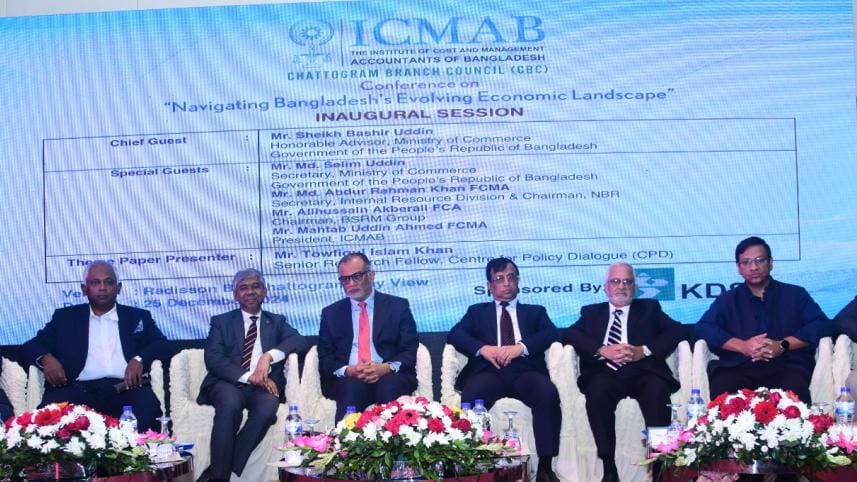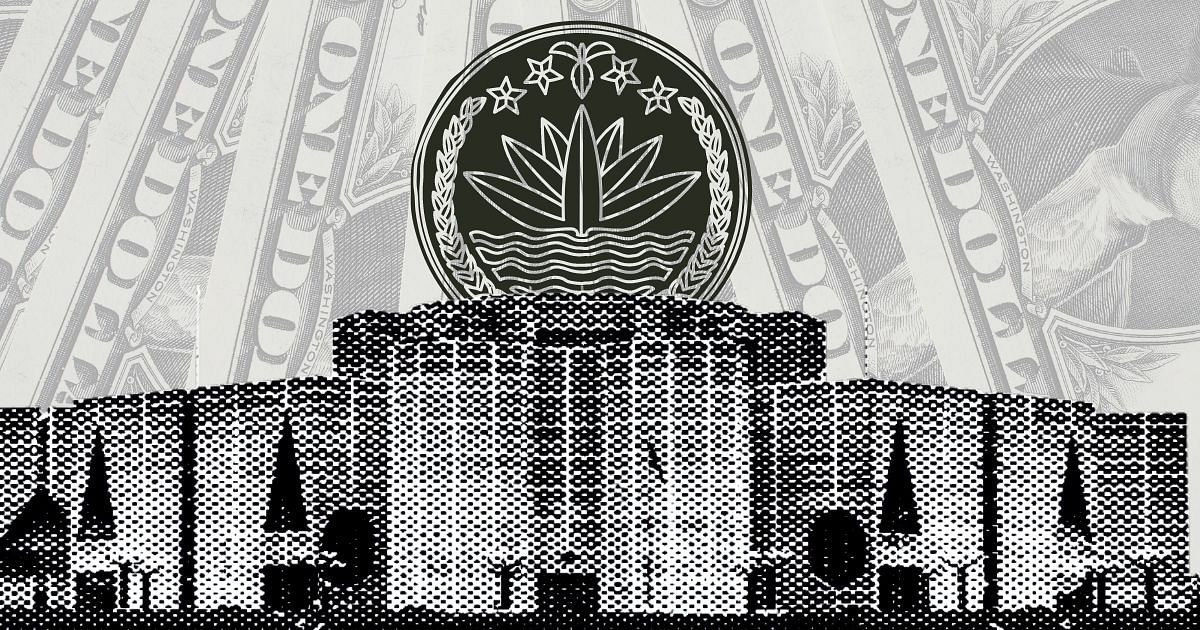Economic stabilisation should be first priority

Bangladesh needs both economic and political reforms to address three major challenges, namely macroeconomic instability, rising inequality and poor governance, which are restricting the country's development potential, according to experts.
Against this backdrop, they said forming a comprehensive and coordinated stabilisation programme should be the first priority in efforts to restore the country's macroeconomic stability.
They were speaking at a daylong annual conference organised by the Chattogram branch of the Institute of Cost and Management Accountants of Bangladesh (ICMAB), styled "Navigating Bangladesh's Evolving Economic Landscapes".
Criminalisation grew in the industrial sector during the ousted Awami League's regime, said Commerce Adviser Sheikh Bashir Uddin while addressing the event's inaugural session at the Radisson Blu Chattogram Bay View today.
"It is very sad that every sector from business communities, bureaucracy, judiciary, secret service and police were part of this nexus," the commerce adviser added.
Mentioning how the country suffers from crony capitalism in different sectors, Uddin said a situation akin to circular debt has been created in power tariffs.
Still, businesses are asking for more incentives to allay the coming headwinds of Bangladesh's graduation from a least developed country.
As such, he stressed for increasing value added taxes to cover costs of increased incentives.
"An economy like ours is very sensitive to changes in global commodity prices. So, everybody is looking for how the state will incentivise them. But where will the state get the money from?" he said.
Uddin further said that the 100 chief executive officers and 300 chief finance officers of different private organisations that are ICMAB members should work together to find a solution for the country's dearth of revenue.
Presenting a thematic paper at the session, Towfiqul Islam Khan, senior research fellow at the Centre for Policy Dialogue, said economic reforms are absolutely critical and must be prioritised alongside political reforms for Bangladesh's advancement.
The first priority of economic policymaking should be restoring macroeconomic stability, he said while adding that a comprehensive and coordinated stabilisation programme is needed to this end.
He emphasised on boosting private investment and job creation with the aim of addressing the economic struggles of average citizens.
The business community is seeking assurance from policymakers on efficient port and logistic facilities alongside a stable supply of gas and electricity and resolution of law-and-order issues to enhance business confidence, he said.
Khan added that a potential economic stabilisation programme of the interim government would require a coordinated action plan to guide policy measures across government agencies, with regular updates and monitoring.
To this end, he emphasised on establishing an economic advisory council comprising key ministry advisers, the Bangladesh Bank governor, independent experts, business and labour leaders with support from the bureaucracy.
Presenting the keynote at a technical session, Economist M Masrur Reaz said the main cause for persistent inflation is supply constraints for declining imports due to the foreign exchange shortage.
Food inflation rose 13.8 per cent in November, up from 12.66 per cent in October, contributing to a general inflation rate of 11.38 per cent.
He recommended promoting agricultural production through modern techniques, improving rural infrastructure and providing support to farmers in facing challenges of low agricultural productivity and high food inflation in the country.
He also urged for improving the quality of public spending, focusing on urgent issues like social safety nets and climate adaptation, while reducing harmful subsidies.
Md Selim Uddin, secretary of the commerce ministry, Md Abdur Rahman Khan, chairman of the National Board of Revenue, Alihussain Akberali, chairman of BSRM, and Mahtab Uddin, president of ICMAB, also spoke at the event.
The inaugural session was chaired by Pradip Paul, chairman of the ICMAB's branch in Chattogram.
 For all latest news, follow The Daily Star's Google News channel.
For all latest news, follow The Daily Star's Google News channel. 


Comments